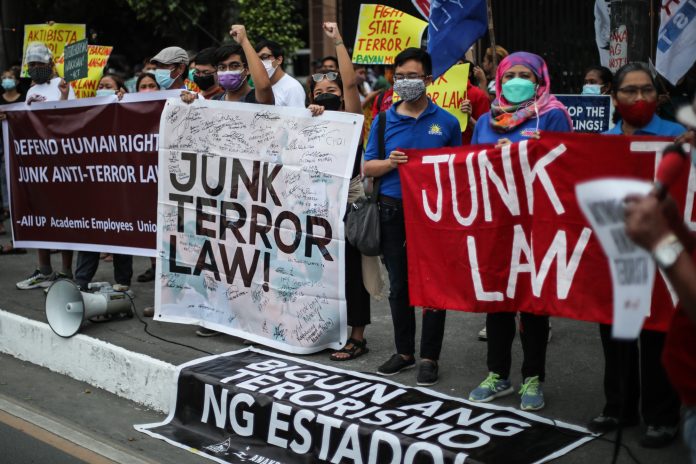The National Council of Churches in the Philippines decried the decision of the country’s Supreme Court to deny all motions for reconsideration “with finality” on the Republic Act No. 11479 or the Anti-Terrorism Act of 2020.
“This is worrisome news not just for civil libertarians but also for the Filipino people,” said Bishop Reuel Norman O. Marigza, NCCP secretary general.
The Protestant bishop is among the petitioners who challenged the anti-terror law, saying it poses serious threats on civil liberties. “This adds to the state’s arsenal of weaponized laws which will be used against its own people,” he said.
In a statement, the NCCP said it is “deeply concerned that the terror law will be instrumental to the continued attacks against human rights and dignity.”
The council said that over the past months prior to the Supreme Court’s decision to uphold the Anti-Terrorism Act of 2020, several church people have been subjected to human rights violations.
“We will remain vigilant,” read the group’s statement, adding that its ministry “to defend and uphold human rights shall continue despite a step backward towards actually having laws and state policies that will indeed protect human rights.”
The Supreme Court has earlier turned down appeals raised by activist and human rights groups to reconsider its decision denying motions to strike down parts of the country’s anti-terrorism law.
The court said the motions on an earlier decision on the petitions challenging Republic Act No. 11479, or the Anti-Terrorism Act were denied “due to lack of substantial issues and arguments raised by the petitioners.”
The law, which was signed by President Rodrigo Duterte on July 3, 2020, has been challenged by a total of 37 petitions before the court.
In December, the Supreme Court struck down the part of Section 4 of the law, which states that an action linked to a protest, advocacy, or dissent could be considered terrorism if it is intended to cause death or physical harm to a person, to endanger a person’s life, or to create a serious risk to public safety.
A separate vote voided part of Section 25 on the second method of designating terrorists, referring to the requests of other countries to designate terrorists that may be adopted by the Philippines’ Anti-Terrorism Council.









